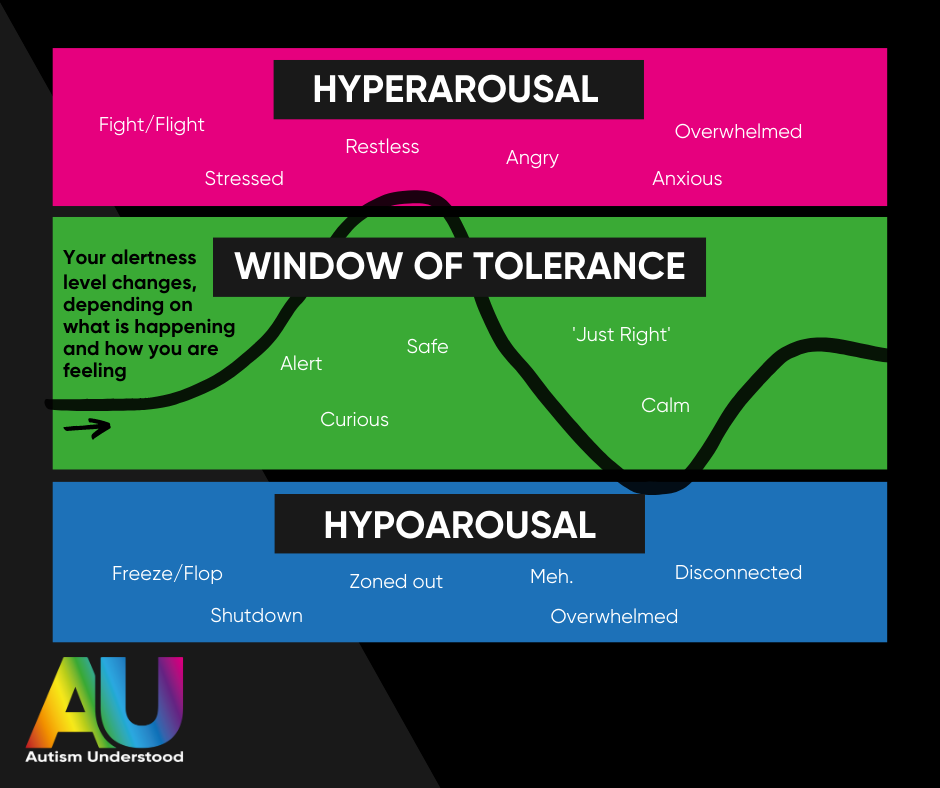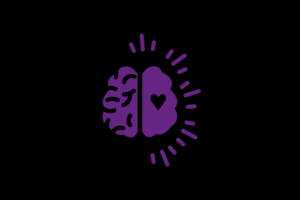Everyone in the world becomes angry, worried, or stressed at some point and when this happens, we can struggle to control our senses, emotions and behaviours. We may not recognise that we are having an emotional experience and so cannot regulate ourselves to stay calm within our “window of tolerance”. The window of tolerance is the zone that we feel most calm, safe, happy and productive in; we are our ‘best selves’ in this zone and we are ‘living our best lives’.
We are able to think, love, learn, play and relax successfully and the bigger our window, the easier it is for us to cope with stressful situations in life. Everyone’s window of tolerance is unique to them, and we all have different triggers that push us out of this zone. When we become emotionally dysregulated, we have come out of our window of tolerance and the adults around us might call this “having a meltdown”.
It can be really easy for the adults around us to become confused by our behaviour and think that we are being ‘naughty’ and even choosing to act this way. They only see what is happening on the outside of our bodies e.g. swearing, throwing something, breaking things, hitting out, but what they might not understand, is what is causing these reactions on the inside of our bodies.
If you think about a big iceberg in the ocean; the small part that you see above the water is our behaviour but the biggest part of the iceberg is underneath the water and these are all the things that are making us anxious and making us more dysregulated. Everyone in the world has a part of the brain called the Limbic System (we call it Panic Monkey) and its job is to always look out for danger and to warn us by sending a signal in our brain to do something to keep us safe. Our brain thinks we are in danger when we feel angry, worried, scared etc. and how we behave when our brain says we are unsafe is out of our control.
Some of us feel anxious a lot of the time, possibly due to negative experiences from school and so a small stress trigger mixed with all the stress we are already feeling can lead to a very big reaction and the adults around us can be unsure why this has happened. If we are feeling anxious a lot, then the ‘Panic Monkey’ or ‘smoke alarm’ in our brain is going off so much and so loudly that it is constantly pushing us out of our window of tolerance and making us become dysregulated very quickly.
Feeling hyper-alert means we go into fight or flight stress mode; on the inside we might feel anxious, overwhelmed, frightened, terrified, or angry. Our body changes, our heart races faster, we can get shaky, and we might get body pains. On the outside people might think we are anxious, aggressive, defensive, obsessive, or controlling.
When we become hypo-aroused we go into freeze or even flop (collapse) mode. On the inside we might feel empty, flat, shutdown, disconnected or even feel nothing; our heart also beats slower. On the outside we might look withdrawn, overwhelmed, quiet, emotionless, inactive, unproductive, burned out, and unable to engage.

Our behaviour is just our bodies, reaction to what is happening around us and we can act differently depending on the situation we are in or the people we are with; but it is not personal. It is not our fault how we react when we are dysregulated and stressed, we should not be blamed or shamed for this because we are not naughty or choosing to act this way. The adults in our life do not need to try and change or ‘treat’ our behaviours, there is nothing wrong with us. The priority is to support us to identify what triggers our anxiety and to create an environment that helps us feel as safe and relaxed as possible.



